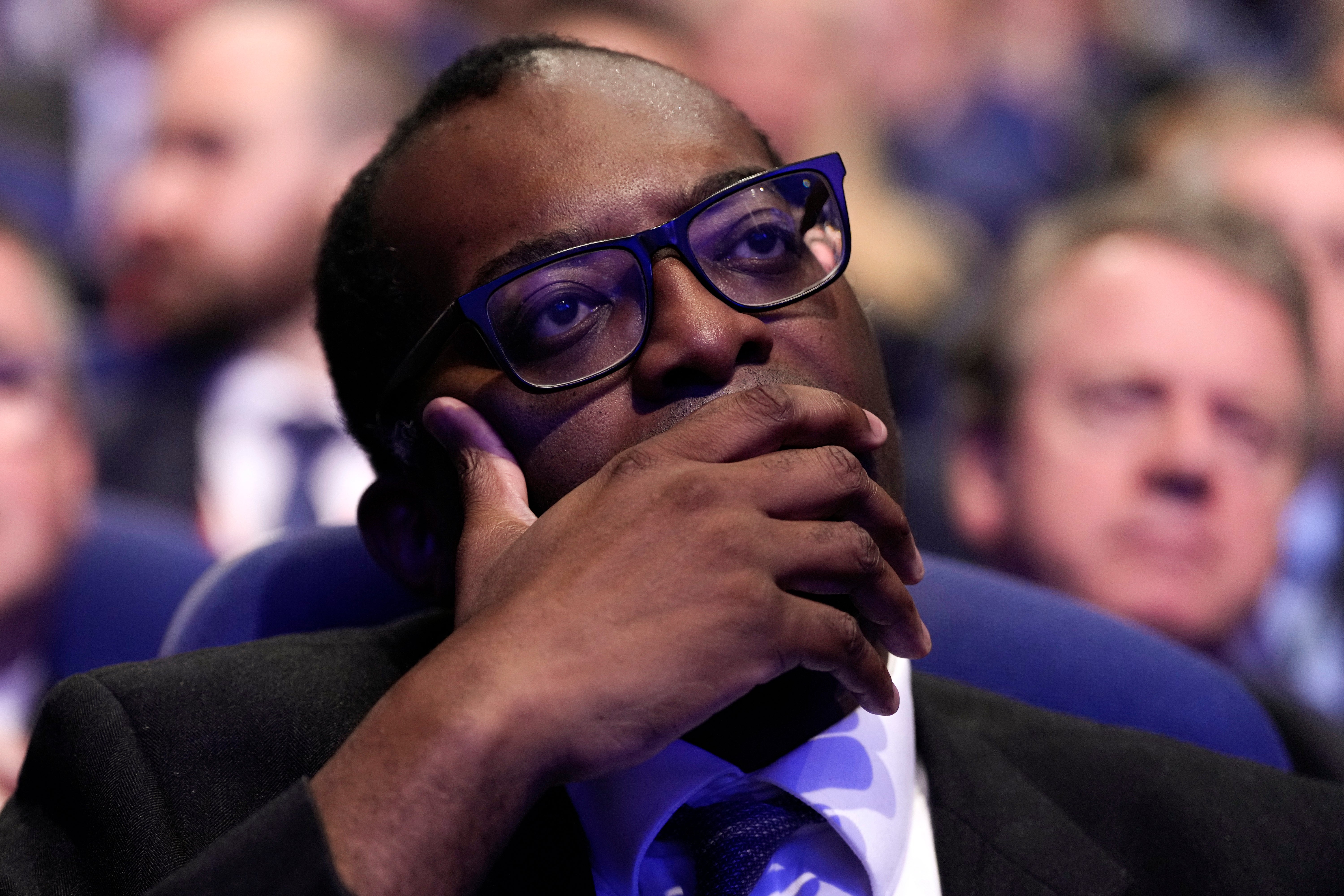Bank of England jumps into market as Kwarteng U-turns again
The IFS says the chancellor needs to find £60bn in cuts to present a credible fiscal plan, writes James Moore


More than two-thirds of us are affected by “Sunday Scaries” – anxiety and sleeplessness about the upcoming week – according to the government’s own Office for Health Improvement and Disparities.
The “scaries” must have been epic this week for the occupants of Downing Street. Ditto for those running the Bank of England, which is in the unfortunate position of having to clear up the godawful mess the government is making of the economy.
The Bank began the week with a bang, announcing it is to purchase up to £10bn worth of gilts – UK government bonds – every day until Friday.
You may recall that the Bank intervened with a pledge to buy up to £65bn-worth of these IOUs after Kwasi Kwarteng’s disastrous mini-Budget, with its £45bn of unfunded tax cuts.
The Bank was forced to act in the wake of a dramatic fall in their price, which has pushed a number of large pension funds to the brink of collapse.
The intervention largely worked. While the price of UK government bonds are still way off where they were before the chancellor launched his assault on UK plc, which means higher yields and higher borrowing costs, the market did find some level of stability.
As a result, while the Bank has tabled offers to buy £40bn in bonds, it has only actually had to spend £5bn. The mere fact of its presence in the markets did the trick.
So why the sudden promise to potentially double daily purchases ahead of the end of the week, when the intervention is scheduled to come to an end?
There’s always a risk that such a move will spook the markets. However, the Bank had wisely taken soundings before acting. It had been told there were worries that the end of the programme would create a “cliff edge”. The market is still nervous and has little trust and/or confidence in Kwarteng and the UK government more generally.
The sudden absence of the Bank’s reassuring presence could easily exacerbate that, causing another wobble.
The chancellor performed yet another U-turn, by bringing forward the publication of the post-budget forecasts of the Office for Budgetary Responsibility to 31 October, so that’s fast approaching too. The strength of the dollar hasn’t helped. The greenback has turned into one of those assault rifles Americans are overly fond of. It’s spraying bullets all over the world, wounding other economies, forcing them to raise rates to keep up.
Set against that, the Bank decided it needed to send another message: We’re still here. We’ll do what it takes. You can rely on us. (At least until Friday.)
After then, perhaps the markets will decide they have enough confidence in the Bank to take this in its stride. But they started the week on a distinctly unhappy note. The pound slid back down towards $1.10. The FTSE 100 opened lower. The FTSE 250, made up of smaller, second-tier companies which are much more reliant on the UK economy, opened much lower.
There is more to come on Tuesday morning as the Institute for Fiscal Studies concludes Kwarteng will need to announce a fiscal tightening of more than £60bn just to stabilise debt as a fraction of national income by 2026–27.
The IFS says that linking working-age benefits to growth in earnings, rather than inflation, for two years could save £13bn. A further £14bn could come from returning investment spending to 2 per cent of national income.
Here’s the problem: Tory MPs have made clear they will not accept real-terms cuts in benefits, which is result of linking them to earnings growth (5 per cent) rather than inflation (10 per cent).
Cutting investment would also be a thoroughly bad idea: one of the UK economy’s biggest problems is the lack of investment it has suffered from both in terms of the public and private sectors.
Even with those unpalatable measures, the IFS says, Kwarteng will still need to cut 15 per cent from non-NHS, non-defence day-to-day public service spending to deliver the required tightening through spending cuts alone.
In order for the chancellor to present a credible fiscal plan with further U-turns, especially on those tax cuts, someone is going to get hit by a bat into which a rusty nail has been hammered.
It is not altogether clear that Tory MPs are of a mind to accept that sort of thing – the legacy of Kwarteng and his boss, Liz Truss having blown whatever political capital they had with the mini-Budget they both worked on.
So get set for a rocky few days, ahead of a potential Halloween horror.
The Bank would like markets to return to normal so that it does not need to prop them up, but it would not be a surprise if it had to act again – perhaps even by the end of the week.






Join our commenting forum
Join thought-provoking conversations, follow other Independent readers and see their replies
Comments